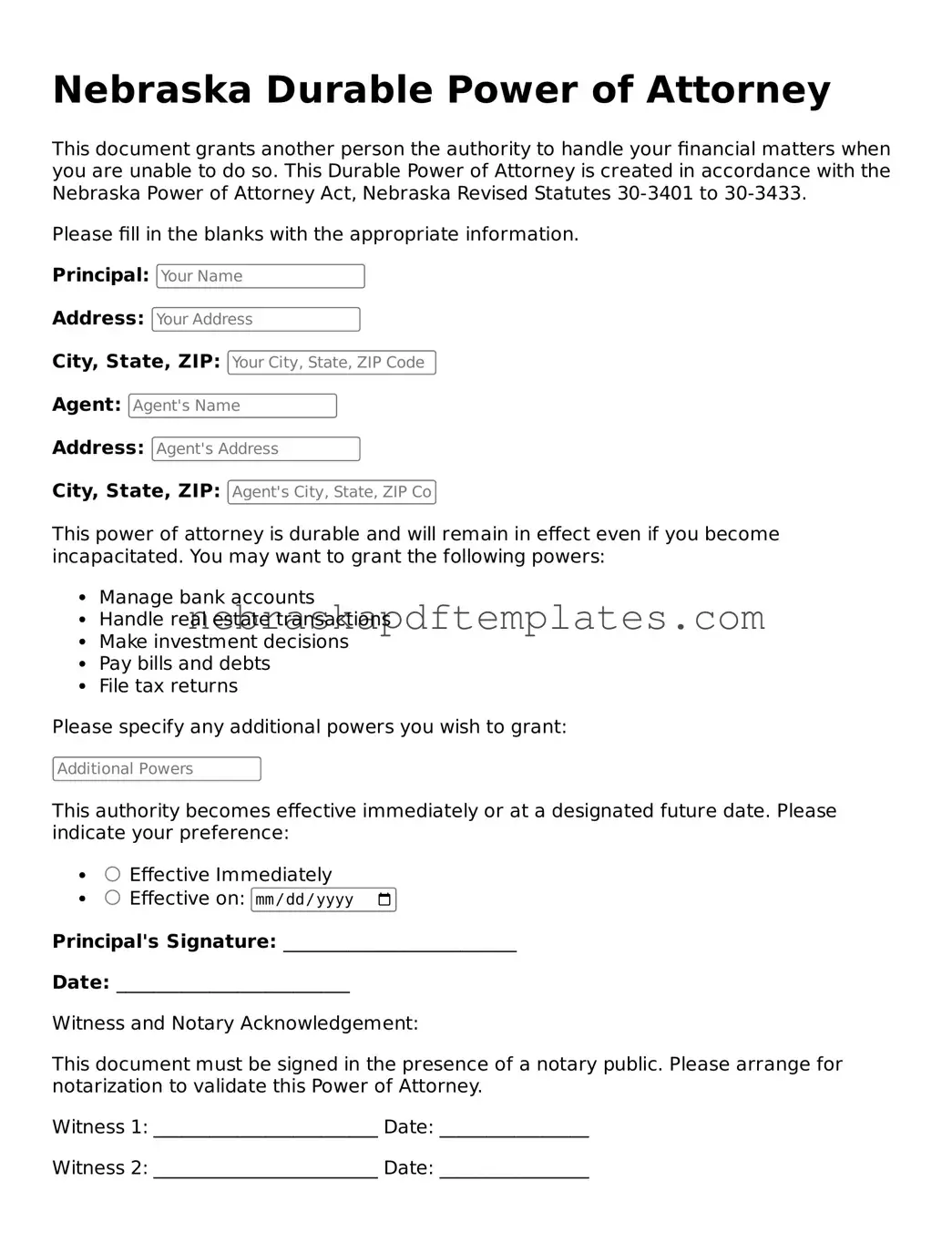Attorney-Verified Durable Power of Attorney Document for Nebraska
A Nebraska Durable Power of Attorney form allows you to appoint someone to make decisions on your behalf regarding financial and legal matters when you are unable to do so. This legal document remains effective even if you become incapacitated, ensuring your wishes are respected. Protect your interests and gain peace of mind by filling out the form by clicking the button below.
Access Editor Here

Attorney-Verified Durable Power of Attorney Document for Nebraska
Access Editor Here
Finish your form now
Finalize Durable Power of Attorney online — edit, save, and download effortlessly.
Access Editor Here
or
➤ Durable Power of Attorney
